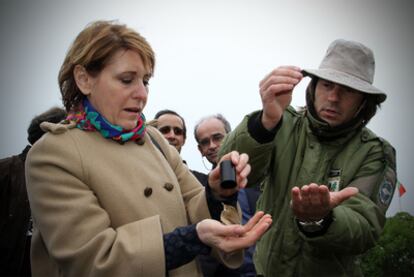A symphony of sustainability in the Alentejo
Terras sem sombra is a Portuguese classical music festival with an environmental spin
Classical music is looking for new directions. And in a future that is already here, everything is possible, from house visits by the Berlin Philharmonic to open-air, off-circuit concerts and digital downloads of forgotten gems. Not to mention a festival that mixes music with protecting the environment.
Held in Portugal's Baixo Alentejo province, Terras sem sombra involves artists participating in acts in support of natural development. Six towns - Santiago do Cacém, Almodôvar, Castro Verde, Vila de Frades, Grândola and Beja - are taking part in the artistic-ecological adventure (www.patrimoniodiocesebeja.com), which continues until July 9.
The music has a distinctly sacred or, if you prefer, spiritual component. The first concert covered an array of pieces, from the 18th-century Il pianto di Maria by Giovanni Ferrandini to the world premiere of Peregrinaçao interior: cinco sonetos quinhentistas by Portuguese composer Alexandre Delgado. Navarran soprano María Bayo took part in both, accompanied by Divino Sospiro, a Portuguese group playing original instruments conducted by Massimo Mazzeo.
The ecological aspect consisted of two very different parts, both in the neighboring Lake Santo André nature reserve. Several migrating birds, for which the Alentejo coast plays a fundamental role, were captured using nets and, once given identifying rings, were released as part of a symbolic act in defense of animal life featuring Delgado, the festival's artistic director Paolo Pinamonti and Bayo. The latter released a nine-gram female nightingale christened with her name.
Later the artists and volunteers weeded a nearby sand dune of invading Carpobrotus edulis plants, which are originally from South Africa and harmful to the balance of biodiversity in the fragile humid coastal areas. Fifty big sackfuls were collected.
The ecological acts surrounding the concerts in the coming weeks are numerous. As well as playing works by Bach, Handel and Scarlatti, the harpsichordist Pierre Hantai will take part in an event helping preserve the exotic fish in the Ribeira do Vascao, on the border between the Alentejo and the Algarve. Another highpoint of this original festival is the recovery of a historic spring of great environmental importance and the construction of a wildlife observation point that will involve the pianists Marta Zabaleta and Miguel Borges Coelho.
At the concert in the church of St Cucufate de Vidigueira, Vila de Frades, on May 28, the pair will play works by Olivier Messiaen, Bach and György Kurtág.

Tu suscripción se está usando en otro dispositivo
¿Quieres añadir otro usuario a tu suscripción?
Si continúas leyendo en este dispositivo, no se podrá leer en el otro.
FlechaTu suscripción se está usando en otro dispositivo y solo puedes acceder a EL PAÍS desde un dispositivo a la vez.
Si quieres compartir tu cuenta, cambia tu suscripción a la modalidad Premium, así podrás añadir otro usuario. Cada uno accederá con su propia cuenta de email, lo que os permitirá personalizar vuestra experiencia en EL PAÍS.
¿Tienes una suscripción de empresa? Accede aquí para contratar más cuentas.
En el caso de no saber quién está usando tu cuenta, te recomendamos cambiar tu contraseña aquí.
Si decides continuar compartiendo tu cuenta, este mensaje se mostrará en tu dispositivo y en el de la otra persona que está usando tu cuenta de forma indefinida, afectando a tu experiencia de lectura. Puedes consultar aquí los términos y condiciones de la suscripción digital.








































